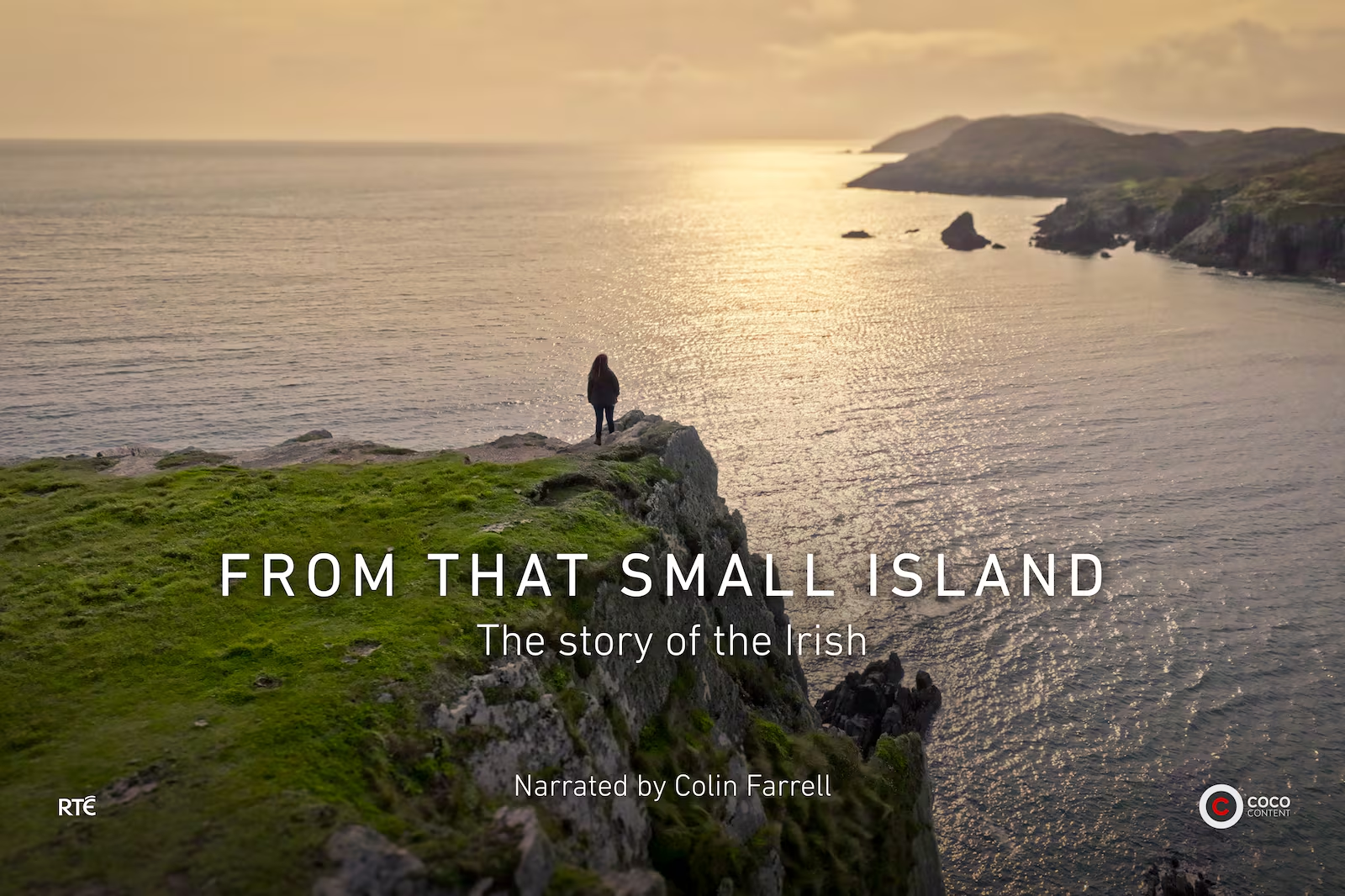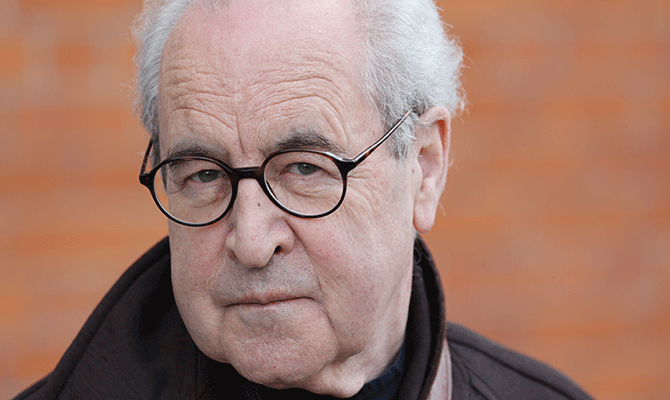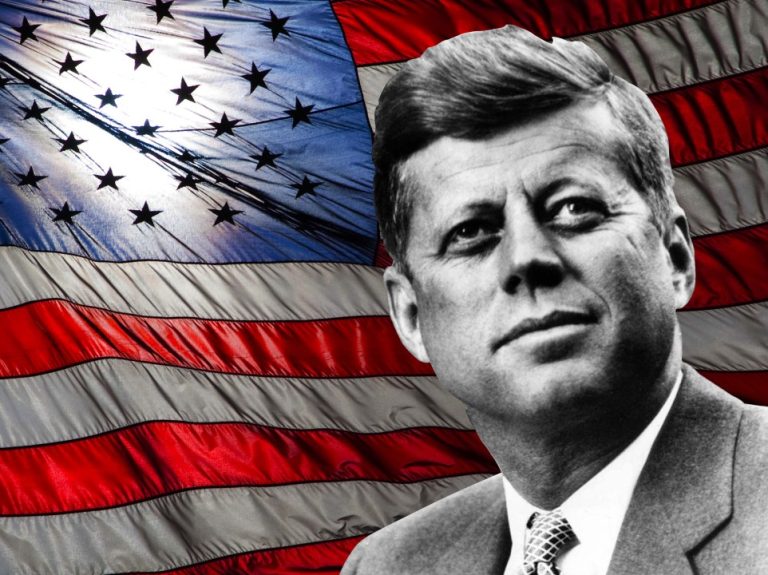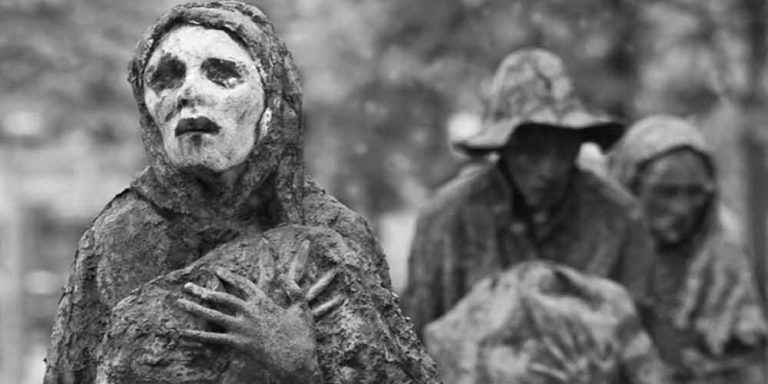

RTÉ’s documentary series From That Small Island: The Story of the Irish, airing from June 8, 2025, and narrated by Colin Farrell, promises a fresh perspective on Ireland’s 8,000-year history.
Instead, it delivers a revisionist narrative steeped in Cultural Marxism, drawing from Antonio Gramsci and the Frankfurt School, aimed at dismantling Ireland’s cultural identity.
By pushing falsehoods about “Irish white privilege” and exaggerating Irish involvement in the transatlantic slave trade, the series buries the truth of Irish suffering, such as the enslavement of villagers in Baltimore, West Cork, in 1631. This review exposes the documentary’s lies and its subversive agenda to rewrite Irish history.
The Myth of ‘Irish White Privilege’
From That Small Island, guided by historian Jane Ohlmeyer and producer Bríona Nic Dhiarmada, asserts that the Irish, despite centuries of British oppression, benefited from “white privilege” in the transatlantic slave trade, particularly in the Caribbean.
The documentary claims that Irish indentured servants in places like Barbados gained advantages due to their “whiteness,” with some rising to become plantation owners.
This narrative is a gross distortion, ignoring the brutal realities faced by these servants, many of whom were forcibly transported and endured inhumane conditions.
In the 17th century, following the Cromwellian conquest, 8 million acres of Irish land were confiscated, and tens of thousands of Irish were shipped to colonies like Barbados and Jamaica as indentured servants.
These individuals, often sent against their will under penal transportation policies, faced high mortality rates from disease, malnutrition, and grueling labor.
The documentary’s assertion that their “whiteness” granted them privilege is misleading, as their treatment was often indistinguishable from that of enslaved Africans, except for the temporary nature of their servitude. Many died before completing their contracts, and those who survived rarely achieved prosperity.
The series highlights families like the Blakes and Kirwans from Galway, who profited in Barbados, to suggest widespread Irish complicity in slavery. However, these are outliers.
The majority of Irish servants remained impoverished, with their descendants, known as “Redlegs” or “Ecky Beckies,” living in extreme poverty in Barbados today. By framing Irish servitude as evidence of “white privilege,” the documentary erases the suffering of these communities and distorts Ireland’s history as a colonized nation exploited by the British empire.
This narrative aligns with modern identity politics, imposing guilt on the Irish for systemic issues they did not create. The documentary’s selective storytelling ignores the broader context of Irish oppression, such as the Penal Laws and the Great Famine, which left the Irish as victims, not beneficiaries, of colonial systems. By emphasizing “white privilege,” it shifts focus from Ireland’s colonial suffering to a revisionist narrative that vilifies the Irish as oppressors.
The Sack of Baltimore: Ireland’s Forgotten Enslavement
One of the most egregious omissions in From That Small Island is the Sack of Baltimore, West Cork, in 1631, when Barbary corsairs raided the village, killing resisters and abducting 107 men, women, and children into slavery in Algiers.
These captives, including infants, were sold at slave markets, subjected to forced labor, and, in the case of women, often faced sexual exploitation due to their “white” appearance, which was prized in the Ottoman trade. Historians estimate that up to 1.25 million Europeans, including many Irish, were enslaved by Barbary pirates between the 16th and 18th centuries.
The Baltimore tragedy, detailed in Des Ekin’s The Stolen Village, underscores that the Irish were victims of slavery, not just participants in it.
Yet, the documentary barely acknowledges such events, focusing instead on Irish complicity in the transatlantic slave trade. This selective omission serves the series’ agenda to portray the Irish as beneficiaries of empire, aligning with a Marxist reinterpretation that vilifies traditional Irish identity. By ignoring the suffering of Baltimore’s villagers, the documentary perpetuates a narrative that erases Ireland’s own history of enslavement.
The failure to address this episode is not an oversight but a deliberate choice to prioritize a guilt-driven narrative over historical truth.
The Irish, far from being privileged, were targeted for their vulnerability, living in coastal areas exposed to pirate raids. This reality contradicts the documentary’s claim that the Irish enjoyed systemic advantages, exposing its revisionist bias. The omission of Baltimore’s tragedy is a stark example of how the series rewrites history to fit a modern ideological framework, ignoring evidence that challenges its narrative.
Gramsci, Frankfurt School, and Cultural Marxism
The ideological foundation of From That Small Island is rooted in Cultural Marxism, a philosophy advanced by Antonio Gramsci and the Frankfurt School.
Gramsci, an Italian Marxist, developed the concept of cultural hegemony, arguing that the ruling class maintains power through ideological control of cultural institutions—media, education, and religion.
His strategy of the “long march through the institutions” called for intellectuals to infiltrate these spaces to reshape societal values, undermining traditional structures like family, faith, and national identity. The Frankfurt School, including thinkers like Max Horkheimer and Herbert Marcuse, expanded this through Critical Theory, portraying Western civilization as inherently oppressive to justify its dismantling.
Jane Ohlmeyer and Bríona Nic Dhiarmada, the academic minds behind the documentary, embody this Gramscian approach. Their claim that Ireland was “never homogeneous, always hybrids, always mongrels” attacks the notion of a cohesive Irish identity rooted in Celtic tradition and Catholicism.
By emphasizing Ireland’s diversity and alleged complicity in empire, they employ the Frankfurt School’s tactic of deconstructing national narratives to create a fragmented, guilt-ridden society more susceptible to Marxist ideology.
This counter-hegemonic strategy seeks to erode pride in Ireland’s cultural heritage, replacing it with a narrative of shame and division.
The documentary’s narrative mirrors Gramsci’s vision of a proletarian culture that challenges bourgeois norms, portraying Ireland as a nation of colonizers as much as the colonized. This is not historical scholarship but ideological subversion, designed to destabilize Irish society by questioning its moral and cultural foundations.
The Frankfurt School’s influence is evident in the series’ use of Critical Theory to frame Irish history as a story of oppression and complicity, encouraging modern Irish society to view its past with guilt rather than pride.
The series’ global scope, filmed in 17 countries, serves to universalize Irish history, diluting its uniqueness. By emphasizing Ireland’s role in empires—British, Spanish, or otherwise—it aligns with Gramsci’s call for a proletarian culture that transcends national boundaries, paving the way for a socialist worldview. This approach mirrors Marcuse’s concept of “repressive tolerance,” which justifies suppressing traditional narratives to promote a radical agenda.
Exaggerating Irish Involvement in the Slave Trade
From That Small Island devotes significant airtime to Irish participation in the transatlantic slave trade, particularly in the Caribbean, to argue that the Irish were active agents of empire.
While some Irish individuals, like the Kellys in Jamaica or Ricardo Wall in Spain, achieved wealth within colonial systems, these cases are exceptions, not the rule. The documentary inflates their significance to suggest widespread Irish complicity, ignoring the broader context of Irish oppression under British rule.
Historian Nini Rodgers notes that Ireland’s engagement with the slave trade was primarily through trade goods, such as salted beef and butter from Cork, which supplied Caribbean plantations. However, this was driven by British colonial policies, not Irish agency. Ireland, as Britain’s first colony, was exploited, with its resources funneled to support the empire. The documentary’s failure to emphasize this context distorts the truth, presenting Irish merchants as willing participants rather than cogs in a colonial machine.
The series’ claim that Irish indentured servants “prospered” due to their whiteness ignores the stark differences between indentured servitude and chattel slavery. While servitude was temporary and not hereditary, it was often involuntary and brutal, with many Irish dying before completing their contracts. Most servants faced conditions akin to slavery, with no systemic privilege. The narrative of “white privilege” dismisses the suffering of these servants, who were treated as disposable labor. By conflating Irish servitude with African slavery, the documentary creates a false equivalence that serves to guilt the Irish into accepting a revisionist history.
This selective storytelling aligns with the Marxist goal of dividing society along class and racial lines, undermining the unity of Irish identity. The focus on rare success stories, like the Kellys, obscures the reality that most Irish in the colonies lived in poverty, far from the privileged status the series implies. This distortion serves the documentary’s agenda to reframe Irish history as one of complicity rather than victimhood.
The Subversion of Irish Culture
From That Small Island is a textbook example of Gramscian cultural hegemony in action.
By infiltrating RTÉ, academics like Ohlmeyer and Nic Dhiarmada advance a counter-hegemonic agenda that challenges Ireland’s traditional values. Their claim that Ireland was “never homogeneous” seeks to dismantle the shared Celtic, Catholic identity, replacing it with a fractured, multicultural narrative that aligns with the Frankfurt School’s vision of a society stripped of its cultural anchors.
The documentary’s treatment of the Great Famine exemplifies this subversion. It challenges the “myth” that only Catholics suffered, ignoring the disproportionate documentation of Catholic suffering due to their majority status. This revision dilutes the reality of British colonial policies that exacerbated the Famine, shifting blame onto the Irish themselves. Such tactics align with Critical Theory’s goal of reframing history to undermine national pride, encouraging a sense of collective guilt.
The series’ emphasis on Ireland’s role in empires universalizes its history, diluting its uniqueness. By portraying the Irish as both victims and oppressors, it sows division, aligning with Gramsci’s strategy of creating a proletarian culture that transcends national identity.
This is not education but propaganda, designed to subvert Ireland’s cultural heritage and replace it with a homogenized, guilt-ridden narrative. The documentary’s global filming in 17 countries further serves this purpose, framing Irish history as a mere subset of global imperialism rather than a distinct story of resilience and survival.
FAQs: Unmasking the Documentary’s Distortions
Frequently Asked Questions About Irish History and the Documentary
Were the Irish Involved in the Transatlantic Slave Trade?
While some Irish individuals, like the Kellys in Jamaica, profited from the slave trade, their involvement was minimal and driven by British colonial systems. Ireland, as a colonized nation, primarily supplied goods like beef and butter to plantations, not as independent agents but as part of Britain’s imperial economy. The documentary exaggerates Irish complicity to push a narrative of “white privilege.”
What Happened During the Sack of Baltimore?
In 1631, Barbary corsairs raided Baltimore, West Cork, abducting 107 men, women, and children into slavery in Algiers. These captives faced forced labor and, for women, sexual exploitation. This event, largely ignored by the documentary, highlights the Irish as victims of slavery, contradicting its “white privilege” narrative.
Did the Irish Benefit from ‘White Privilege’ in the Caribbean?
The documentary’s claim that Irish indentured servants benefited from “white privilege” is misleading. Most faced brutal conditions, with high mortality rates, and only a tiny minority, like the Blakes, prospered. Descendants known as “Redlegs” remain impoverished, undermining the privilege narrative.
How Does Cultural Marxism Influence the Documentary?
The documentary reflects Antonio Gramsci’s cultural hegemony and the Frankfurt School’s Critical Theory, framing Irish history as a story of complicity to erode national pride. This counter-hegemonic approach seeks to destabilize Irish identity, replacing it with a guilt-driven narrative.
Why Does the Documentary Ignore Irish Enslavement?
By omitting events like the Sack of Baltimore, the documentary prioritizes a narrative of Irish complicity over victimhood, aligning with a Marxist agenda to divide society and undermine traditional Irish identity.
Was Ireland a Colony or a Colonizer?
Ireland was Britain’s first colony, subjected to land confiscation, the Penal Laws, and the Famine. While some Irish served in colonial systems, their roles were minor and driven by British policies, not independent agency, contrary to the documentary’s claims.
How Did British Policies Affect the Irish During the Famine?
British colonial policies, including laissez-faire economics and export of food during the Great Famine, exacerbated Irish suffering. The documentary’s claim that Protestants and Catholics suffered equally dilutes this reality, shifting blame from colonial oppression.
What Is the Goal of the Documentary’s Revisionist Narrative?
The documentary aims to reframe Irish history as a story of complicity in empire, aligning with Marxist goals of sowing division and eroding cultural identity to make society more amenable to socialist ideology.
The Real Irish History: Victims, Not Villains
Ireland’s history is one of resilience in the face of oppression, not privilege. The documentary’s claim that the Irish were “agents of empire” ignores the reality of British colonization, which stripped Ireland of its land, language, and resources. The transplantation to Connacht, the Penal Laws, and the Great Famine were punishments, not privileges. The Irish who served in colonial armies, such as in India, were often treated as second-class citizens, unable to rise through the ranks despite enforcing British rule.
The Sack of Baltimore and similar events demonstrate that the Irish were victims of slavery, not just participants in it. The documentary’s refusal to center these stories while amplifying rare cases of Irish prosperity in the Caribbean is a deliberate attempt to rewrite history in a way that aligns with Marxist goals of division and cultural erosion. By ignoring Ireland’s suffering under colonial rule, the series dismisses the resilience that defined the Irish experience, from surviving pirate raids to enduring the Famine.
The documentary’s narrative is a betrayal of Ireland’s true history. It seeks to impose a modern ideological framework that vilifies the Irish as oppressors, ignoring their centuries-long struggle against British domination. This revisionism serves to divide Irish society, pitting communities against each other and undermining the shared cultural heritage that has sustained the nation through hardship.
Conclusion: Resisting the Cultural Marxist Assault
From That Small Island is not a documentary but a propaganda piece, cloaked in academic credibility, that seeks to dismantle Ireland’s cultural identity. By exaggerating Irish involvement in the slave trade and peddling the myth of “white privilege,” it erases the truth of Irish suffering, from the Sack of Baltimore to Cromwellian transportations. Its Gramscian and Frankfurt School-inspired narrative aims to subvert Ireland’s traditional values, replacing them with a fragmented, guilt-ridden identity that serves a Marxist agenda. Ireland must reject this cultural subversion and reclaim its true history of resilience, survival, and unity. Share your thoughts on this documentary’s distortions in the comments below!



